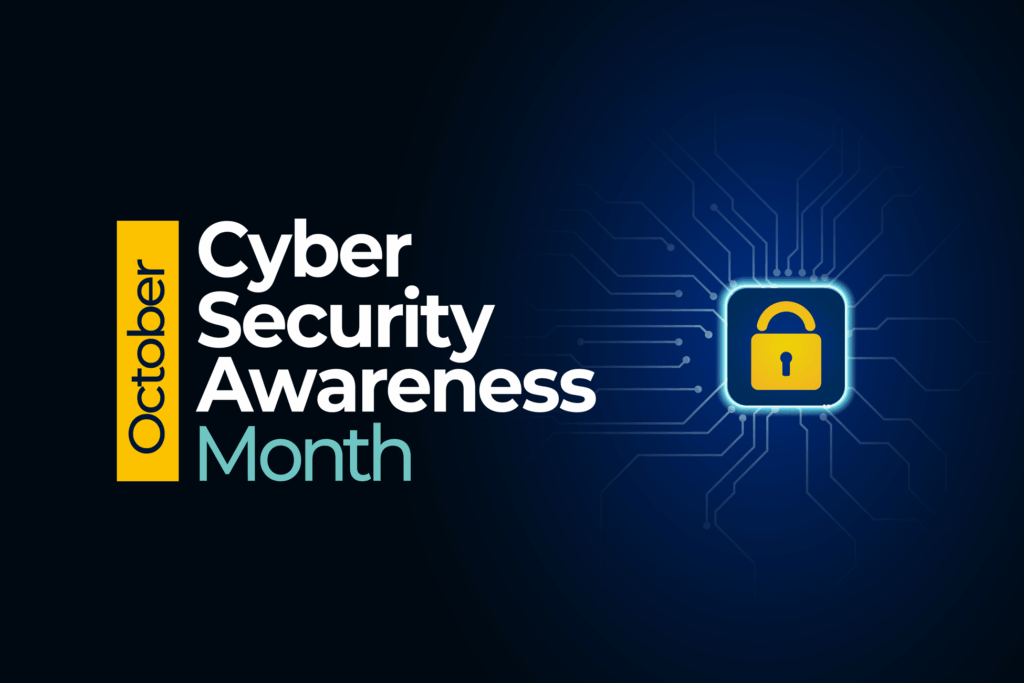From the days of hand-written ledgers, collecting personal data from customers and contacts has always been part of normal operations for any organization.
In the digital age, that same information and how it’s handled is taking center stage in consumer protection. Data privacy breaches are becoming more frequent, and their fallout is affecting more people.
To that end, data privacy regulations are becoming more commonplace — and stringent — the world over. They’re part of a new normal.
For someone new to the world of data privacy compliance, the abundance of regulations may seem like alphabet soup. However, understanding the regulations and implementing the proper frameworks is critical to keeping your organization and its customer data safe.
Why Data Privacy Compliance Matters
Data privacy compliance isn’t solely about checking all the boxes to meet regulations and avoid data breaches and fines. Certainly, that is a big part of why compliance matters to any organization.
Going beyond its basic definition, data privacy compliance is about customer protection. It’s a preventive measure to stop personal information from falling into the wrong hands. For organizations — from corporations to healthcare providers to educational institutions — compliance allows for business as usual in an increasingly digital world.
Data privacy compliance is indeed complex — there are nuances with each regulation. Regardless of its intricacies and constant evolution, data privacy compliance is about peace of mind.
5 Data Privacy Compliance Regulations to Be Aware Of
Though there are seemingly countless data privacy regulations, there are five in particular that organizations should be familiar with and prepared to meet:
- General Data Protection Regulation (GDPR)
- California Privacy Rights Act (CPRA)
- Privacy & Electronic Communications Regulations (PECR)
- Family Educational Rights and Privacy Act (FERPA)
- Health Insurance Portability and Accountability Act (HIPAA)
1. General Data Protection Regulation (GDPR)
What is GDPR? Implemented in 2018, the General Data Protection Regulation (GDPR) is considered one of the largest — and strongest — data protection regulations in the world. Encompassing all members of the European Union, the GDPR sets strict rules for companies collecting and keeping personal data of EU citizens.
The GDPR has eight key provisions:
- The right to be informed: Individuals are allowed to know about the collection of their personal data, how that information is used, how long it’s kept, and how it’s erased.
- The right of access: Individuals are allowed to request a copy of their personal data.
- The right to rectification: Individuals can have personal data corrected if it’s wrong or incomplete.
- The right to be forgotten: Individuals’ personal data must be erased upon their request.
- The right to restrict processing: An individual may limit how an organization uses their personal data. This provision does not mean an organization isn’t allowed to store collected personal data.
- The right to data portability: Individuals are allowed to obtain their personal data and use it as they see fit.
- The right to object: Individuals are allowed to stop the processing of their personal data at any time.
- Rights in relation to automated decision-making and profiling: Organizations are not allowed to use collected data to profile individuals or make decisions about them using methods without human involvement.
Why it matters: The GDPR applies to all organizations collecting, processing, and storing data of EU citizens. Yes, that includes those located outside the EU. The GDPR has guidelines for disclosures and data-handling processes that organizations must obey to be in compliance. Failure to meet the regulations means face penalties, such as steep fines.
2. California Privacy Rights Act (CPRA)
What is the CCPA? Another law passed in 2018, the CCPA is very similar to the GDPR. Like the European regulation, the CCPA regulates how organizations collect and maintain personal data while protecting the rights of Californians to exert control over it. More specifically, provisions of the CCPA give California residents the right to:
- Know what personal data is being collected
- Know if their personal data is being sold and to whom
- Say no to the sale of their personal data
- Access their personal data
- Request erasure of their personal data
- Not be discriminated against by exercising any of the above rights
Why it matters: Just like the GDPR, the CCPA does not discriminate against which locations must comply with the regulation. In other words, if you’re an Ohio-based business collecting the personal data of a California resident, you must adhere to CCPA compliance standards.
3. Privacy & Electronic Communications Regulations (PECR)
What is PECR? A precursor to GDPR, PECR is a regulation from the UK passed in 2003. While the GDPR governs how personal data is collected and processed, PECR sets rules for electronic marketing, such as:
- Marketing calls
- Emails
- Text messages
- Cookies
It also enacts parameters for secure communications and individual privacy for location data, billing, and directory listings.
Why it matters: Considered a complementary law to the GDPR, PECR sets guidelines for how an organization markets to UK citizens. One of the biggest stipulations of the regulation is its governance for emails. The regulation prohibits organizations from:
- Sending marketing emails without prior permission of the recipient
- Not including an unsubscribe option in emails
- Hiding the “sent from” email address
Like the GDPR, failure to comply with PECR may mean fines and other penalties.
4. Family Educational Rights and Privacy Act (FERPA)
What is FERPA? A U.S. regulation, the FERPA sets data privacy governances for student education records. The law applies to all educational institutions receiving funding through the U.S. Department of Education. Under FERPA, a student has the right to:
- Inspect and review their education records
- Request corrections of inaccurate information
FERPA also dictates who has access to a student’s records without previous consent, which includes:
- School officials with legitimate educational interest
- Other schools to which a student is transferring
- Specified officials for audit or evaluation purposes
- Appropriate parties in connection with financial aid to a student
- Organizations conducting certain studies for or on behalf of the school
- Accrediting organizations
Why it matters: FERPA violations can have broad implications. Student education records aren’t just a glorified report card. They often contain other personal information, such as addresses, medical conditions, and identifiers. FERPA keeps students’ educational information private — even from their parents, unless there’s an emergency. It also allows students to exert control over their educational records and how they’re used.
5. Health Insurance Portability and Accountability Act (HIPAA)
What is HIPAA? Sweeping legislation passed in 1996 under the Clinton Administration, HIPAA set information privacy standards for patient information. Under the law, healthcare and health insurance organizations are required to protect patient information and records against theft and fraud. As times changed with digitization, the law evolved to place controls on how electronic patient records are maintained and securely transmitted.
Why it matters: At its core, HIPAA does not allow for any health provider or insurance company to disclose a patient’s information without their consent. This includes potential data breaches, meaning health organizations and insurance providers must have a framework in place to keep their networks secure. HIPAA compliance also places limits on exactly who has access to a patient’s records in a healthcare setting.
Country-Specific Data Privacy Regulations to Know
Like the EU, several countries have implemented broad data privacy regulations that govern organizations collecting consumer data from their citizens.
Australia
Australian lawmakers updated the Privacy Act of 1988 in 2020, a law that governs the handling of personal information. The modernized legislation is similar to GDPR and sets standards for the collection, use, storage, and disclosure of private personal information.
China
Home to one of the biggest economies in the world, China enacted its first national data privacy law in September 2021, the Personal Information Protection Law of the People’s Republic of China (PIPL). PIPL primarily focuses on apps that collect personal data, restricting how that information is handled. The law applies to any business or organization collecting personal information on Chinese citizens.
India
India’s Personal Data Protection Bill of 2019 is rooted in other international privacy regulations. While it does not overtly outline regulations for personal privacy rights, it does serve as the legal precedent for protecting consumer personal data. It’s also broad, so interpretations will be easy to apply as technology changes.
Japan
One of the first data privacy regulations in Asia, Japan’s Act on the Protection of Personal Information (APPI) is among the most comprehensive in the world. The law protects both personal information and “special care required” personal information (medical history, criminal records, race, religion).
Uniquely, the APPI does not mandate that companies ask for consent when transferring data. However, it does require companies to publicly announce when they are and to whom.
Singapore
Driven in part by economics, Singapore’s Personal Data Protection Act 2010 provides industry-specific data privacy regulation. What’s more, it created a national Do Not Call registry that those doing business within the country must comply with.
United States
Many states are now following California’s lead with developing or implementing their own data privacy regulations, such as:
The Future of Data Privacy Compliance
Put simply, data privacy compliance requirements aren’t going anywhere. They’re just a normal part of doing business of any sort. As technology develops and consumer expectations change, data privacy is only expected to evolve.
Though meeting the data privacy regulations of today and tomorrow will always be an ongoing task, maintaining compliance keeps both your organization and those it interacts with safe from costly personal-data compromises.
Ensure Your Organization is Always in Compliance
Our team of experts is well-versed in the data privacy regulations that matter most to your organization.





